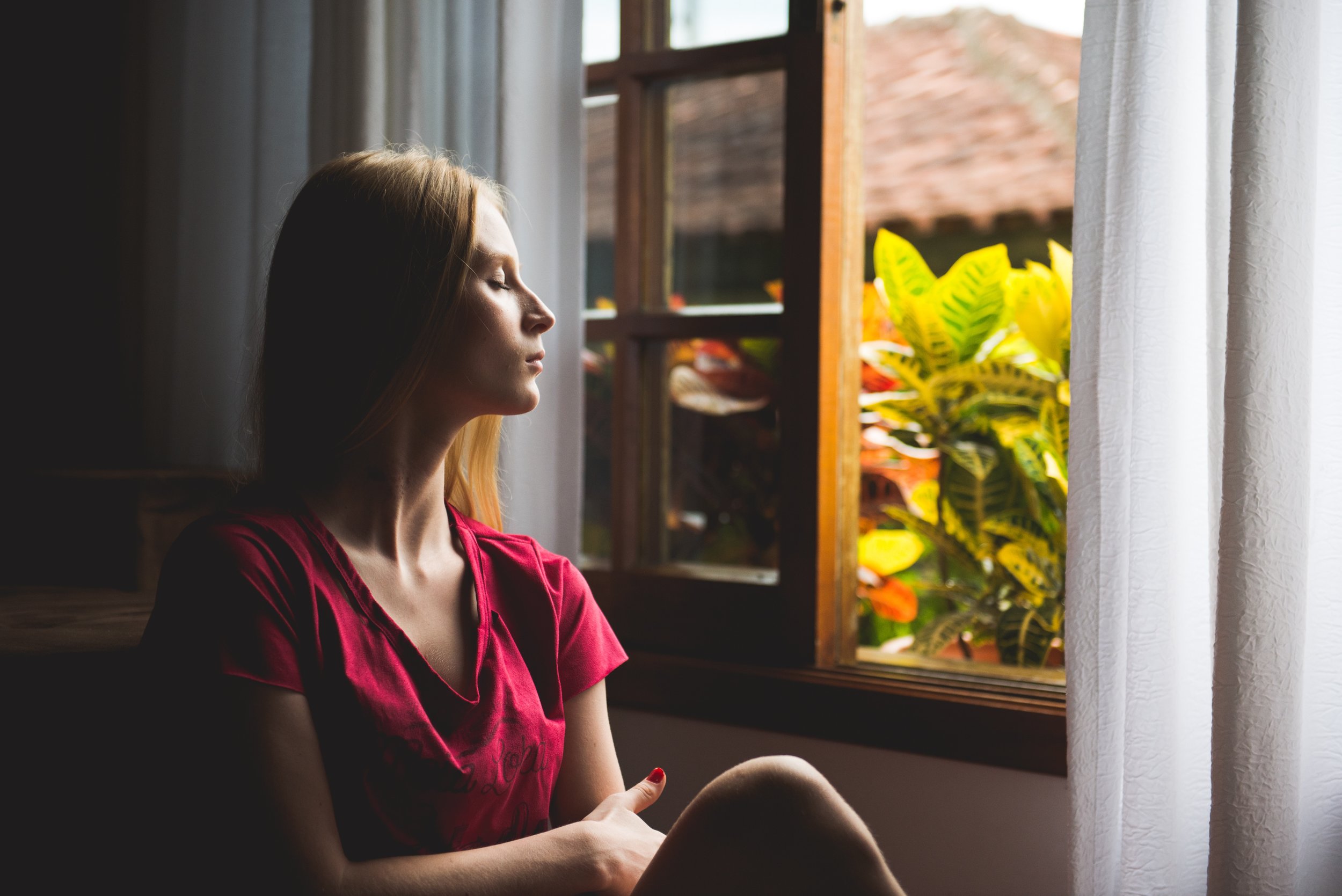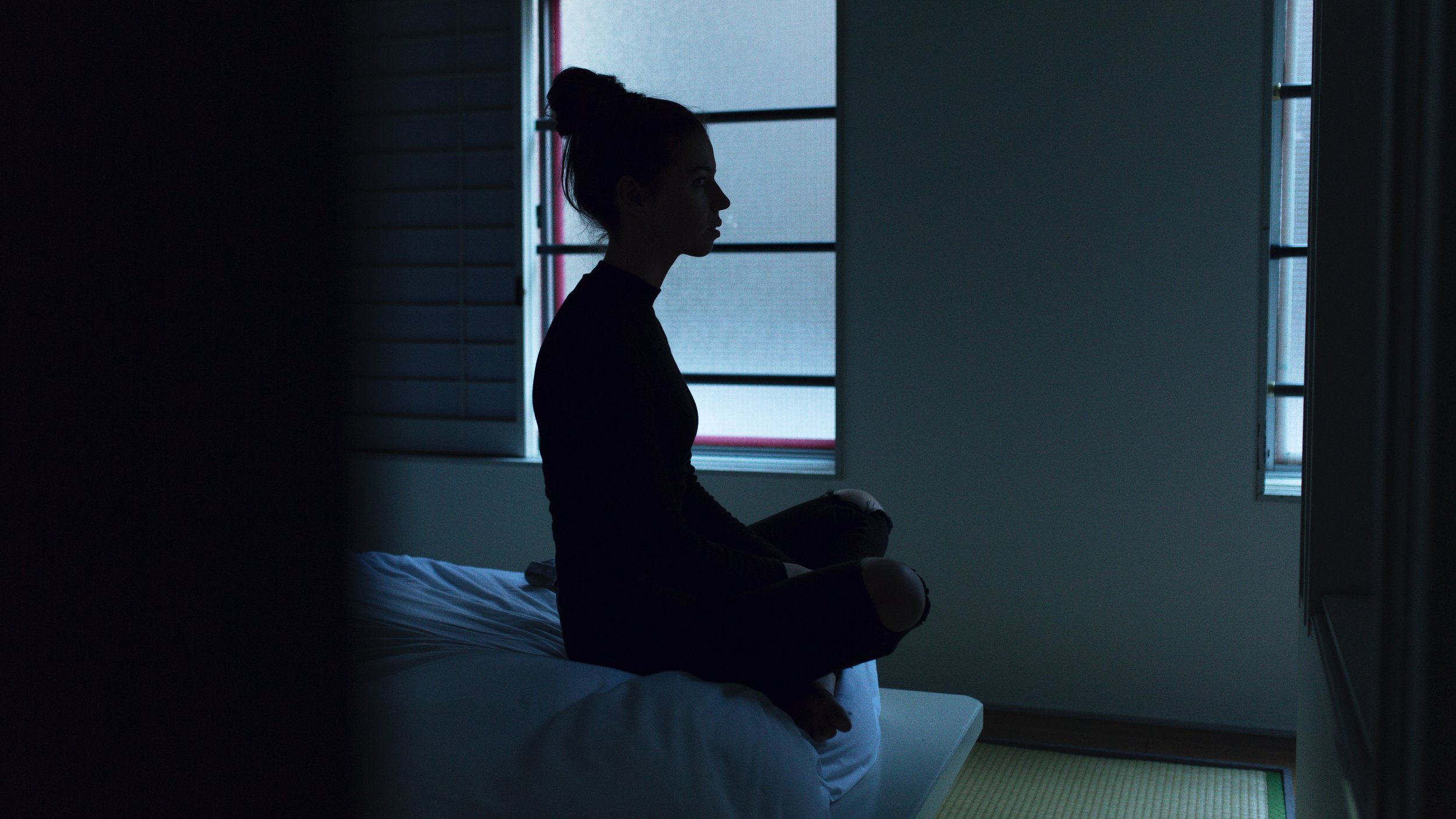Meditation is one part of a daily mindfulness practice
Meditation and mindful awareness are two components of a mindfulness practice. Both are equally important. Meditation helps you learn how to focus your mind, which in turn helps you focus your attention on the world around you in the moment. Mindful awareness, or focusing your attention on the present moment, can be as simple as paying attention to an activity you do mindlessly everyday, like brushing your teeth.
Because we’re so used to just doing, without thinking, each part of a mindfulness practice really does take practice. We’re so used to going about our day with our mind running in a million different directions that bringing it back to the here and now can seem difficult. For some it can be frustrating, because it doesn’t always come easily.
What Is Meditation?
Learning to focus your attention is where daily meditation can help. Meditation is sitting quietly and focusing on an anchor. An anchor can be your breath, a mantra or something else you choose to bring your attention back to each time it wanders. And it will wander, because we’re human and we’re wired to be thinking, planning and worrying beings. Each time you bring your attention back to your anchor, you’re being mindful! It’s that easy — or not!
A key component of meditation is being compassionate and non-judgmental with yourself. Some days it might come easily; other days, when you’ve got a lot on your min or you’re easily distracted, it can be harder. What’s important is to enter into the meditation with the intention of being mindfully centered and try not to give yourself a hard time if it feels difficult. You can even say to yourself, “My intention was to meditate mindfully for 10 minutes today. It was very hard for me because my mind was all over the place. My intention is to try it again tomorrow.”
Mindful Meditation: Getting Started
Meditation can be guided or you can guide yourself. I think that when you begin a mindful meditation practice, it’s much easier to have some gentle guidance. A bunch of apps for you phone, websites with free meditations and YouTube videos are available to help you get started. I’ve listed a few resources at the bottom of this post.
Make meditation a part of your daily routine
When talking with my clients, I suggest picking a time of day when you won’t be disturbed and finding a place where you can sit quietly. I like to meditate in the morning when I’m at home by myself, or when I’m between clients in my office. To start, try meditating once a day for 3–5 minutes. It’s important to do it everyday, but if you forget, be compassionate with yourself and do it tomorrow.
Once you’ve established a routine, begin increasing the amount of time that you meditate. Ideally doing it for at least 10 minutes a day is a good goal. You’ll probably begin to notice that your thoughts automatically come and go, and it gets easier to come back to your anchor and to be less reactive about the thoughts that do pop up. That’s because you’re learning to let your thoughts pass through, instead of latching on to them.
My Experience
I find that when I take the time to meditate before I start my day, I can approach the day with greater sense of ease and intention. Do I still get stressed out? Of course! But I know that the stress will pass too, much like my thoughts. Meditation allows me to feel stress, but I don’t have to be stressed. If I don’t overly identify with the feeling, then I can acknowledge its presence without it pulling me under.
Do you meditate, or have your tried it? I’d love to know your experience in the comments. If you don’t meditate but would like to start and think having a group to support you would be helpful, I have an eight-week group, beginning later this month, where we will practice meditation and mindful awareness together. You can find out more here.
In my next post, I’ll talk about mindful awareness and how to bring more of it into your life.
Elizabeth Cush, LCPC is a therapist and the owner of Progression Counseling in Annapolis, Md. She helps busy, overwhelmed men and women manage their anxiety and stress so they can live their lives with more ease, contentment and purpose. If you'd like to know more about how individual and group therapy can help ease anxiety and stress call me 410-340-8469.
You can also find me on Twitter, Facebook and Linked In
Photo by Natalia Figueredo and by Ben Blennerhassett on Unsplash





